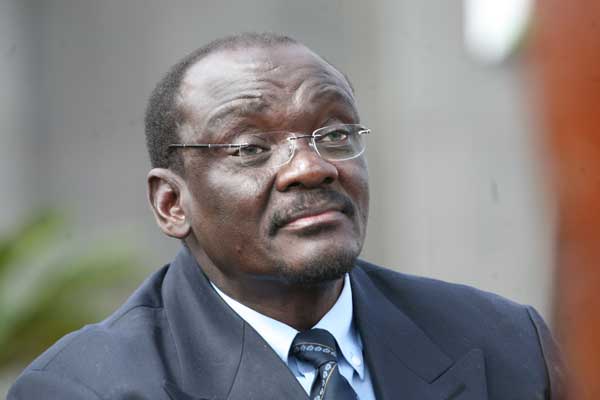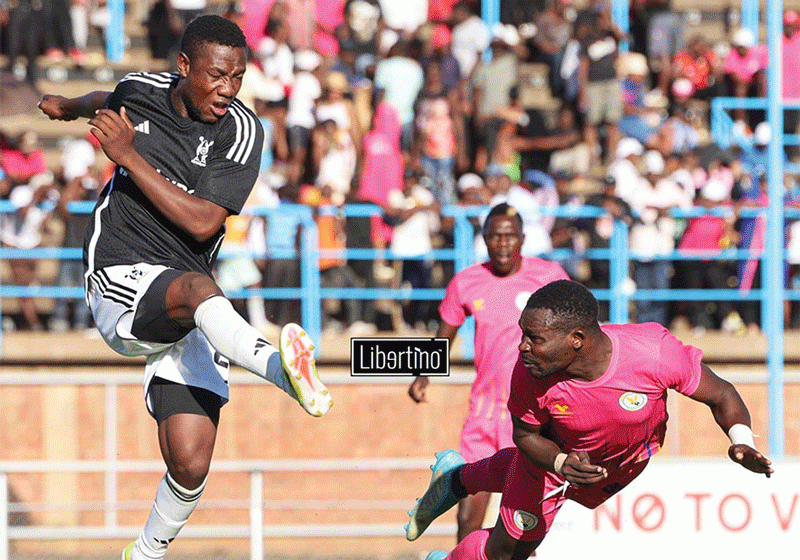
VICE-PRESIDENT Kembo Mohadi’s revelation that he is still suffering from the trauma of the grenade attack that killed two people at a June campaign rally in Bulawayo addressed by President Emmerson Mnangagwa is quite revealing.
BY TAPIWA ZIVIRA/REX MPHISA
The attack killed two people, including Mohadi’s aide, while Mohadi himself, Defence minister Oppah Muchinguri and Vice-President Constantino Chiwenga’s wife, Marry, were among the injured.
“I still see him, I think of him (the late aide). He was just by my side and I think about him. He is on my mind,” Mohadi said.
“For me, it [bomb attack] was an occupational hazard. We are in these things [politics] and those are some of the occupational hazards, I can say.”
As a Vice-President, with unfettered perks and a fat pocket, Mohadi probably has access to the best post-trauma counselling facilities, access which millions of Zimbabweans who have endured periods of war, conflict, economic losses, and displacements, cannot afford.
However, his story — which is related to a recent incident — speaks of the dire need for government to steer a genuine reconciliation and healing process that covers the entire country’s history.
Despite statistics showing that 50 000 people died in the 1966 to 1979 struggle for Zimbabwe’s independence from British rule, and between 1982 and 1987, more than 20 000 died at the hands of the North Korea-trained Fifth Brigade in what has become known as the Gukurahundi massacres, the country is yet to conduct any healing process.
- Chamisa under fire over US$120K donation
- Mavhunga puts DeMbare into Chibuku quarterfinals
- Pension funds bet on Cabora Bassa oilfields
- Councils defy govt fire tender directive
Keep Reading
Further into the late 1990s period leading up to the mid-2000s, government, under the leadership of former President Robert Mugabe, made systematic and State-sponsored attacks on political rivals, with an estimate that in the 2008 elections alone, about 300 opposition activists were maimed or killed, and thousands were internally displaced after a vengeful Mugabe lost the first round of elections to the late opposition MDC-T leader Morgan Tsvangirai.
As dissent against Mugabe grew, and protests and civil action mounted, the police, and to some extent, the army, remained instruments of repression, always ready to arrest, brutalise, and abduct those who attempted to speak against the government’s economic mismanagement.
To this day, the whereabouts of activists such as Itai Dzamara, who was abducted three years ago, and Paul Chizuze, who went missing eight years ago, remain unknown.
Only last year, when the military carried out a coup to oust Mugabe and installed President Emmerson Mnangagwa to lead the country, there were reports of attacks and harassment targeting Mugabe loyalists.
Two days after elections on July 30, members of the army took to the streets and fired live bullets, killing seven people and leaving many others injured as the country waited for the results of the presidential poll.
Far from political repression, Zimbabwe has gone through phases such as Operation Murambatsvina, which, according to the United Nations, left over 700 000 internally displaced.
With the country’s health sector heavily affected by the economic malaise, thousands of people have died from cholera and typhoid, while there were long phases of health professionals’ job actions that resulted in loss of lives.
In 2008, many people lost their savings to the record hyperinflation, while many Zimbabweans, who have fled the country for political and economic reasons, have continued to live like paupers in other countries.
Only last week, a dark cloud hung over Mnangagwa’s inauguration promise to unite and heal the nation when police brutalised people in Harare during an operation to drive vendors out of the central business district.
With all this, peace and reconciliation, as happened in South Africa and Rwanda, remain a key issue in Zimbabwe, and according to the Human Rights NGO Forum, government must commit to “building a just, inclusive and accountable Zimbabwe”.
Over just 100 days in 1994, nearly a million Rwandans were killed in a genocide driven by the Hutu-Tutsi ethnic differences, and the country was to later carry out a transitional justice process that led to co-existence and national development, and today, Rwanda shines as one of the progressive countries in Africa.
Post-apartheid government in South Africa also carried out a nearly similar transitional justice process.
Zimbabwe nearly managed to go through a peace and reconciliation process in 2008 when Sadc facilitated a transitional unity government between Mugabe and Tsvangirai, a process that created the current Constitution.
A key element of the new Constitution is Chapter 12, which provides for the establishment of independent commissions, among them the National Peace and Reconciliation Commission (NPRC) whose tasks are to “ensure post-conflict justice, healing and reconciliation”, among other functions that foster national unity and cohesion.
After taking oaths of office earlier this year, the NPRC held stakeholder meetings to gather people’s views on contentious issues in the country, and NPRC chairperson Retired Justice Selo Masole Nare last week said:
“The NPRC encourages unity, dialogue, and tolerance to prevail across the country and implores all peace-building stakeholders that include government, civil society, traditional leaders, church leadership, business, the youth, women, people with disabilities, and political parties to join the NPRC in its quest to foster a peaceful Zimbabwe for generations.”
National Transitional Justice Working Group co-ordinator Dzikamai Bere said apart from a country-wide healing and reconciliation process to deal with various issues in the country, there needs to be preventive measures to deal with future cases.







